A meeting of inclusive Reformed schools was held at the Scottish Mission in Budapest, with the primary aim of developing the Network of Inclusive Reformed Schools, sharing good practices and training in methodology. In two training blocks, participants reflected together on the possibilities of interviewing and factors influencing student success. We asked Kriszta Naszádi, project coordinator of the Inclusive Schools Programme, about the event.
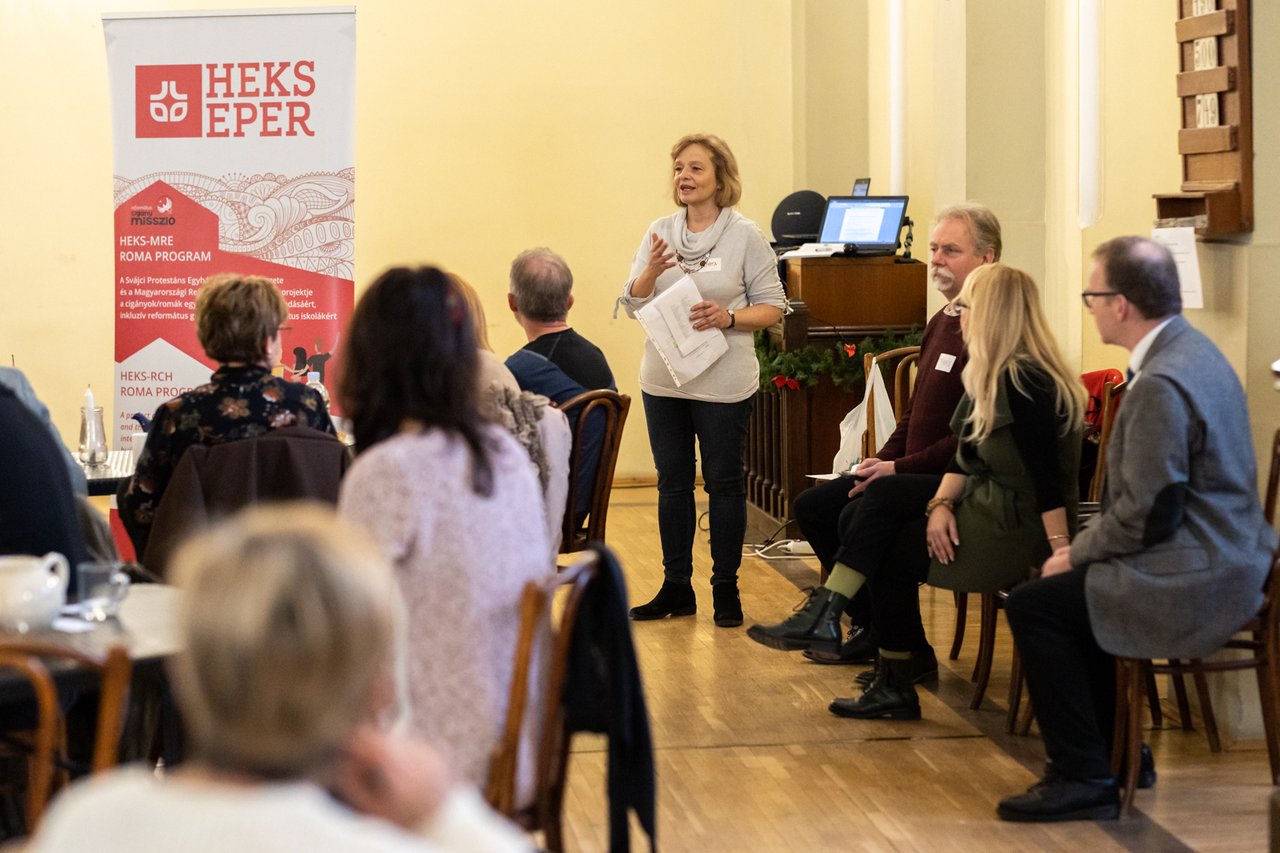
Kriszta Naszádi, project coordinator of the Inclusive Schools Programme
Photo: Levente Váradi
An inclusive school network meeting was held last week. Please tell us about this event! What does the name HEKS stand for, and what is the inclusive education you are focusing on?
HEKS is the aid organization of the Protestant Church in Switzerland, which has been supporting our church's ministry among Roma since its cooperation agreement with the Reformed Church in Hungary (RCH) in 2013. The school part of the programme has been running for more than five years. Every year, we organize two network meetings for schools already participating or interested in the programme.
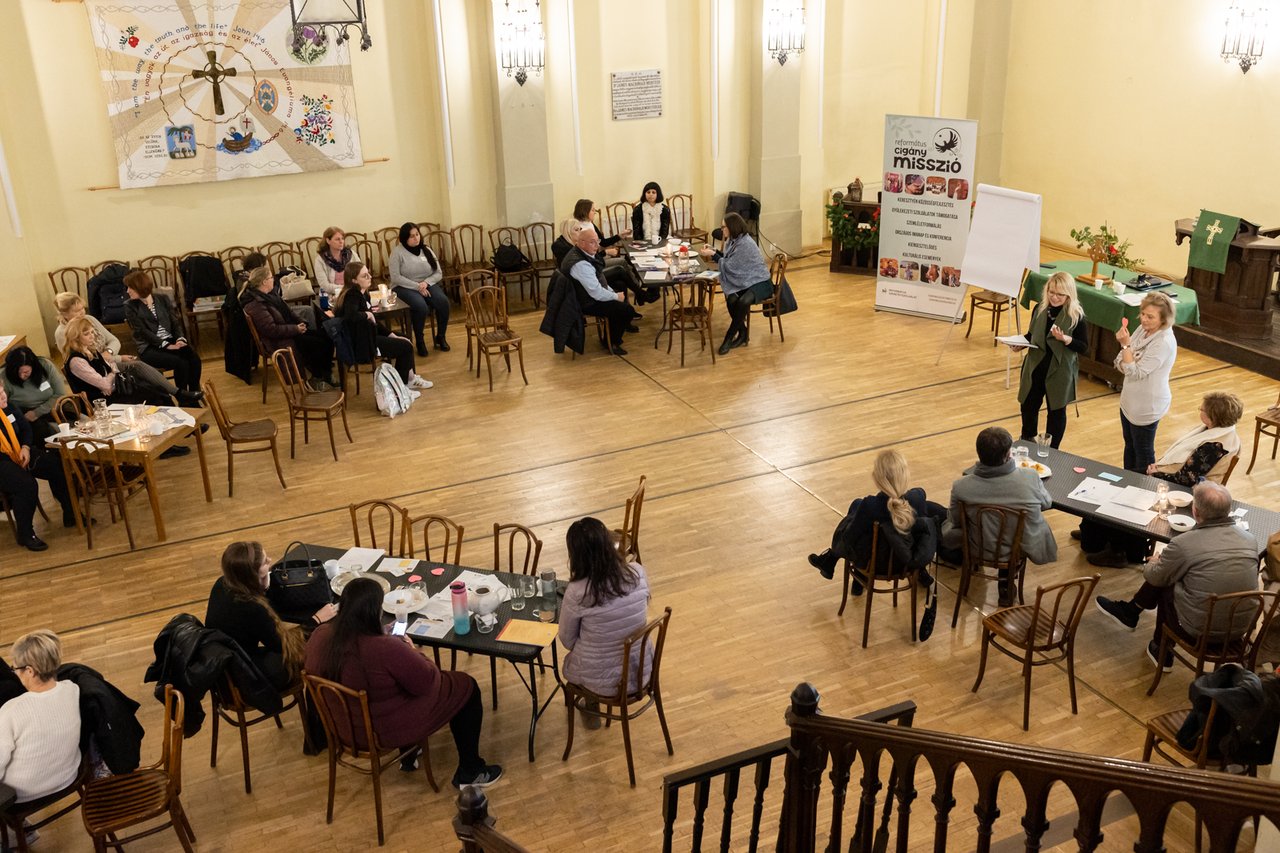
Photo: Levente Váradi
Inclusion is also reflected in schools' attitudes and teachers' individual beliefs. The goal is an inclusive school that provides equal access to opportunities and resources for all, including those who would otherwise be excluded from the community. We support schools with ongoing mentoring, as well as providing training and the opportunity to participate in a competition. We also offer financial resources to implement inclusion in their schools.
Who attended the meeting?
This autumn's meeting was held at the Scottish Mission in Budapest. We meet every six months, and this time, a total of ten groups of teachers from schools for Roma and non-Roma children attended the event, from Drávafok in Baranya to Hódmezővásárhely, Kiskunhalas and Csengersima in the Eastern part of the country. Beatrix Török, an expert from the Reformed Education Service, was also present, as well as Mária Sápi from the Reformed Pedagogical Institute. The staff of the Roma Ministry within the Department for Inclusion of the Diaconia of the RCH helped to organize the event and to get to know the teachers of the participating schools, their experiences, and their daily challenges.
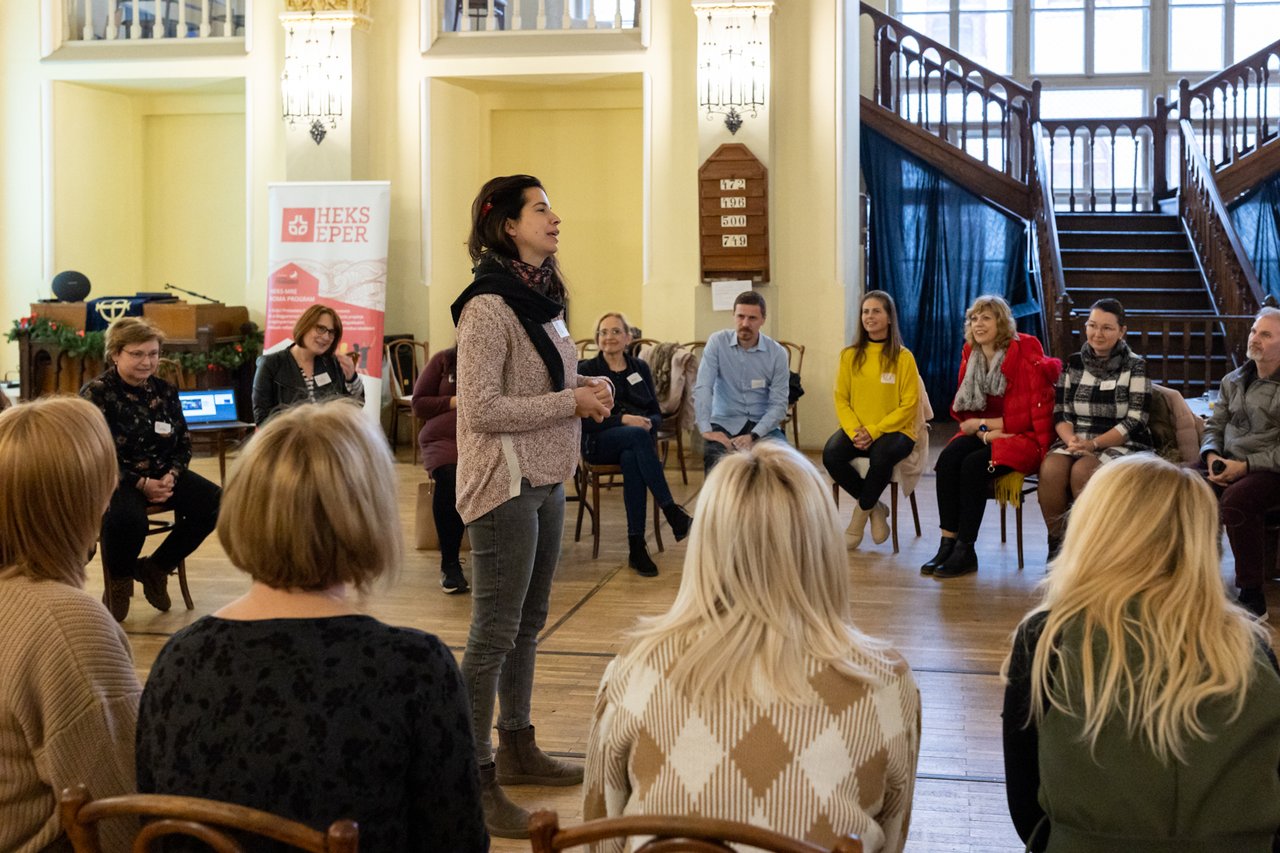
Photo: Levente Váradi
What are the elements of the programme?
The formal part of the meeting started at 10 am, by which time delegations from all over the country had arrived. Between the two world wars, the Scottish Mission ran a girls' school where Jewish and Christian children were educated together. This story was told in a very funny way by the host pastor, Aaron C. Stevens, using two puppets.
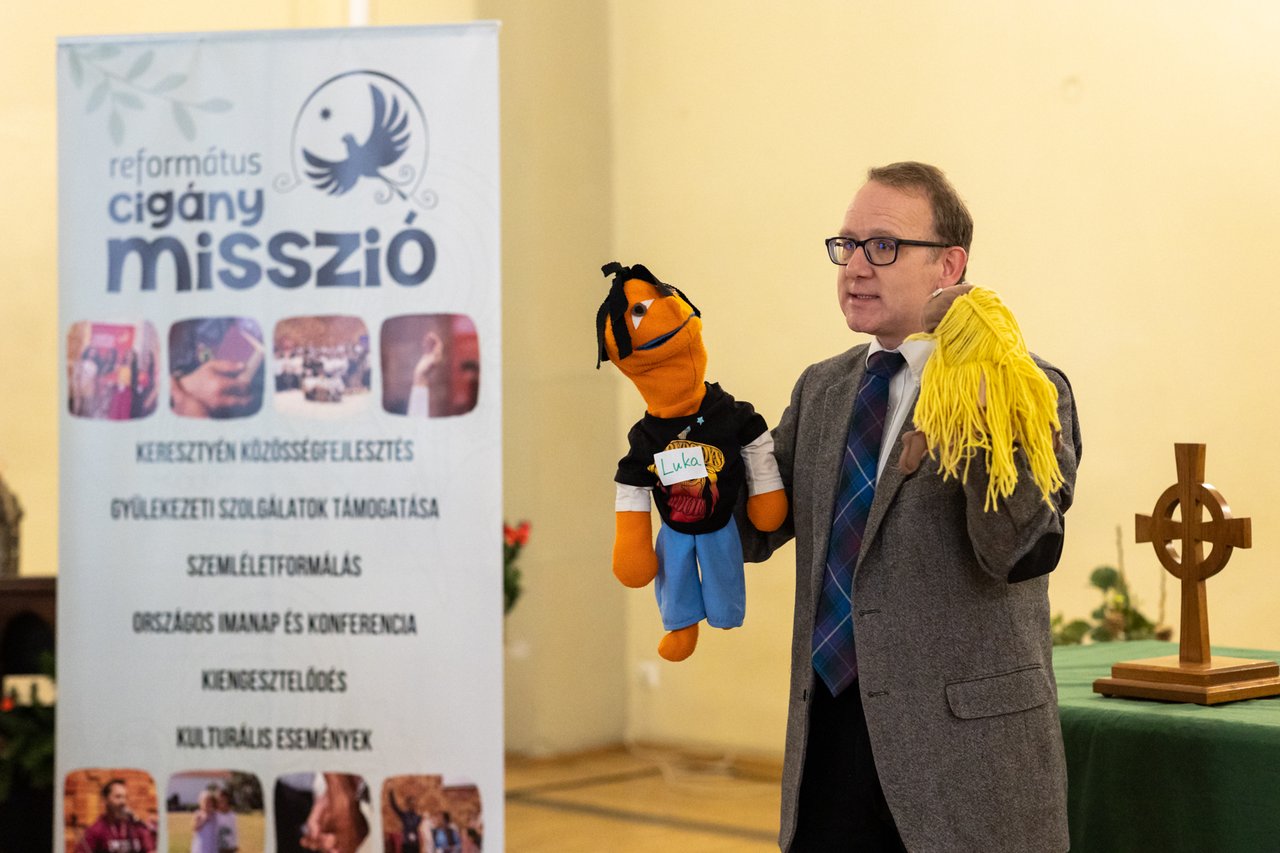
Rev. Aaron C. Stevens, minister of the Scottish Mission
Photo: Levente Váradi
Afterward, we gathered around tables, figuratively interpreting the meeting space as a café. Good practices from the different schools were on the menu, and the people at the table could choose which good practice they would like to hear. In this format, teachers were hired out to share good practices from their own schools. It was a very good opportunity for schools to get to know each other.
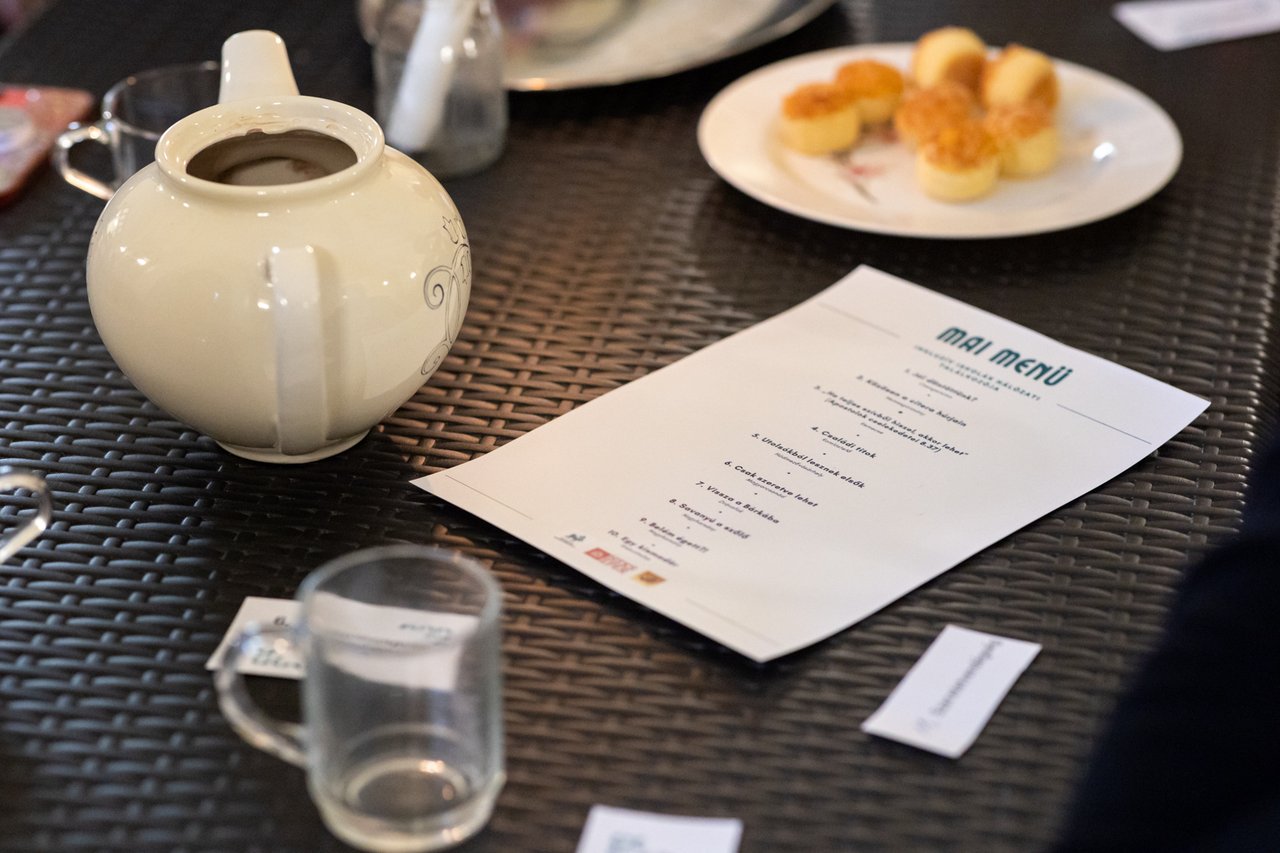
Photo: Levente Váradi
The participants were then divided into 2 groups. The heads of the institutions participated in an interview case study session led by Tamás Pontyos, a church development specialist, where the challenges of inclusive schools were discussed, and together they sought answers. The group decided to continue this work online next year.
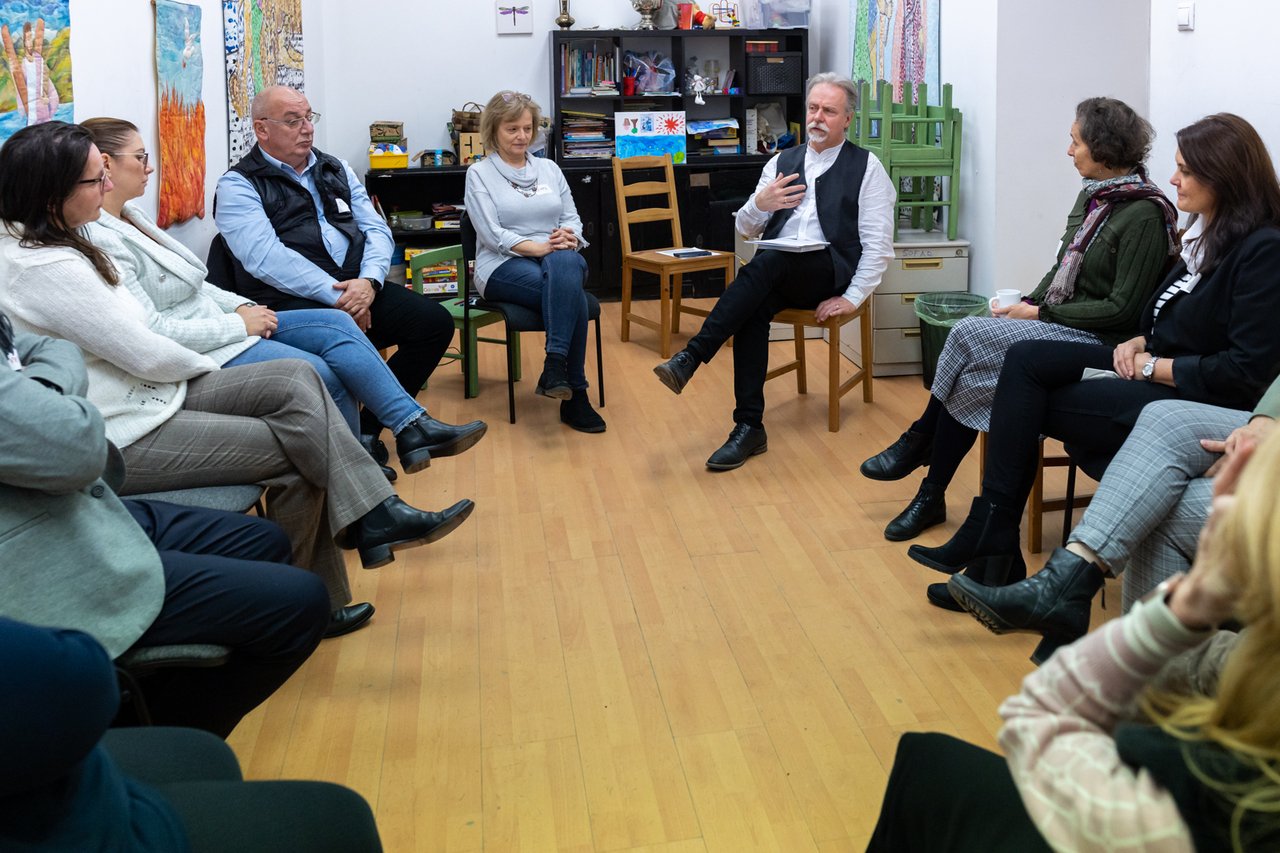
Photo: Levente Váradi
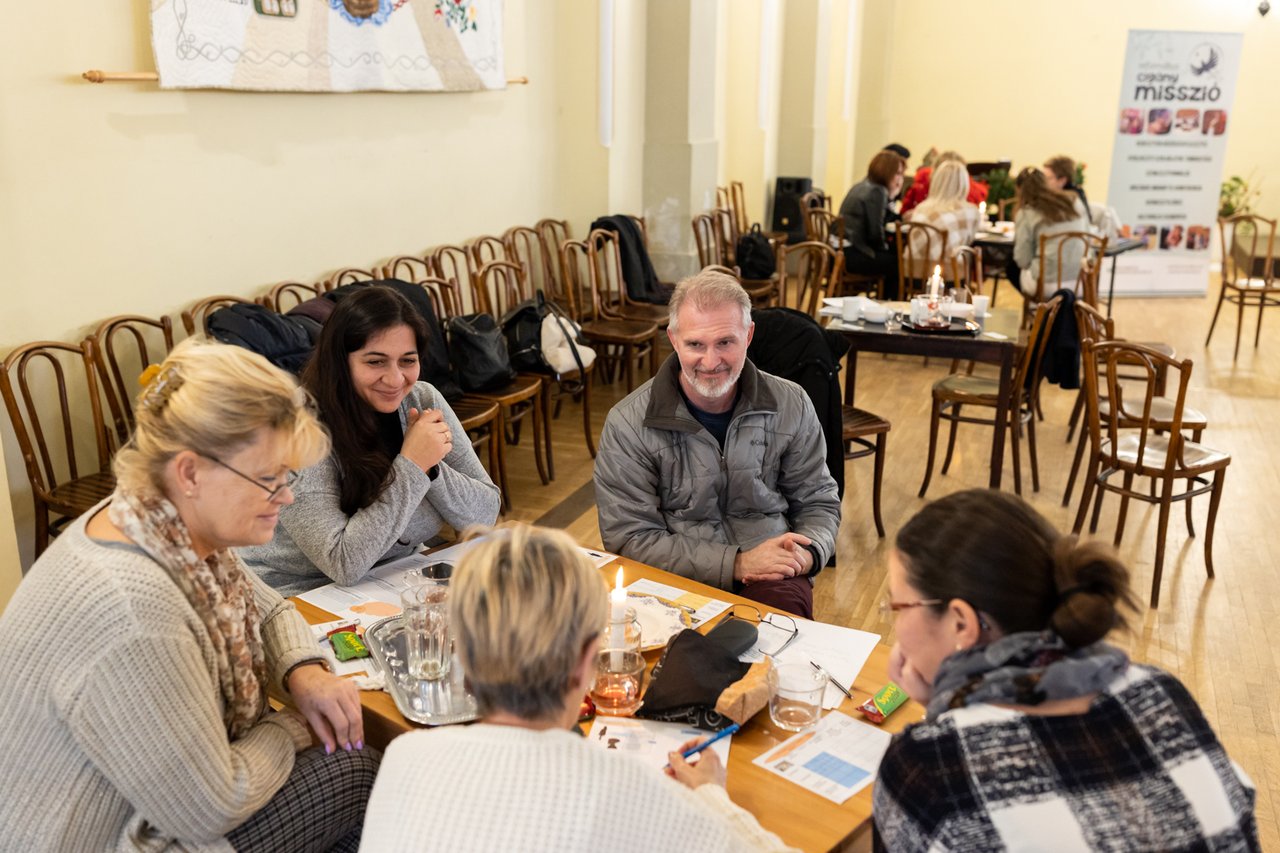
Photo: Levente Váradi
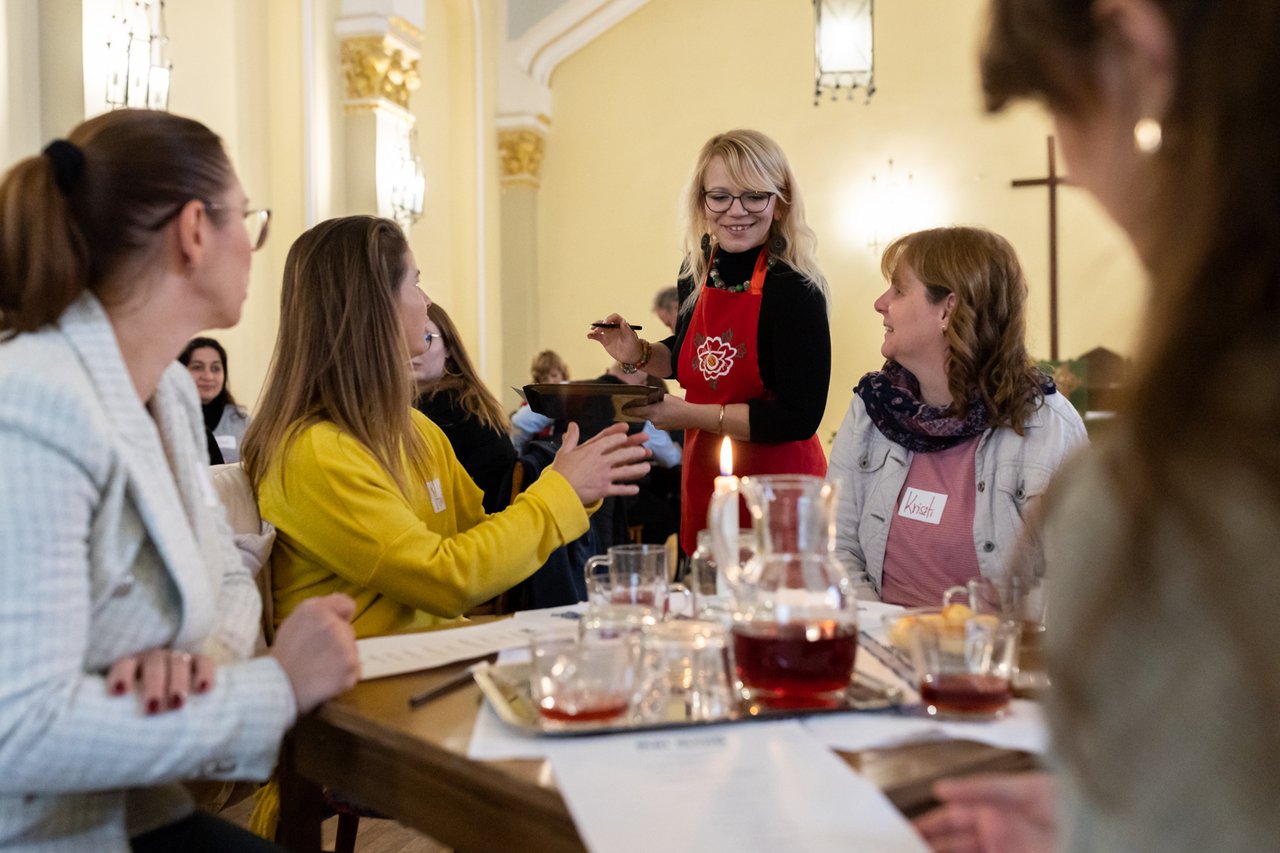
Photo: Levente Váradi
Orsolya Pintérné Lázok led the other group. Here, the workshop imagined the fate of an imaginary child who started from a disadvantaged background. The task was to gather the hopes that teachers could place in the heart of such a child and how they could help to make this a reality. The main purpose of the group's work was to plan the path that a disadvantaged child could take toward the realization of his or her life's purpose.
What do the two exciting terms often used in pedagogical work mean: supervision and interviewing?
Supervision is a facilitative process in which a supervisor looks at a process or case from the outside, as it were, and in this way arrives at a solution to a problem of a person or group, such as a principal or a faculty.
Interviews are a very democratic method, as everyone participates as equals in the discussion. The intervention methodology offers ten different ways of working through cases. This is largely done by asking questions so that the person who brings the case forward can use the questions to build up some kind of action plan. The intervention is, therefore, a modern case discussion method, for which a booklet was given to the participants.
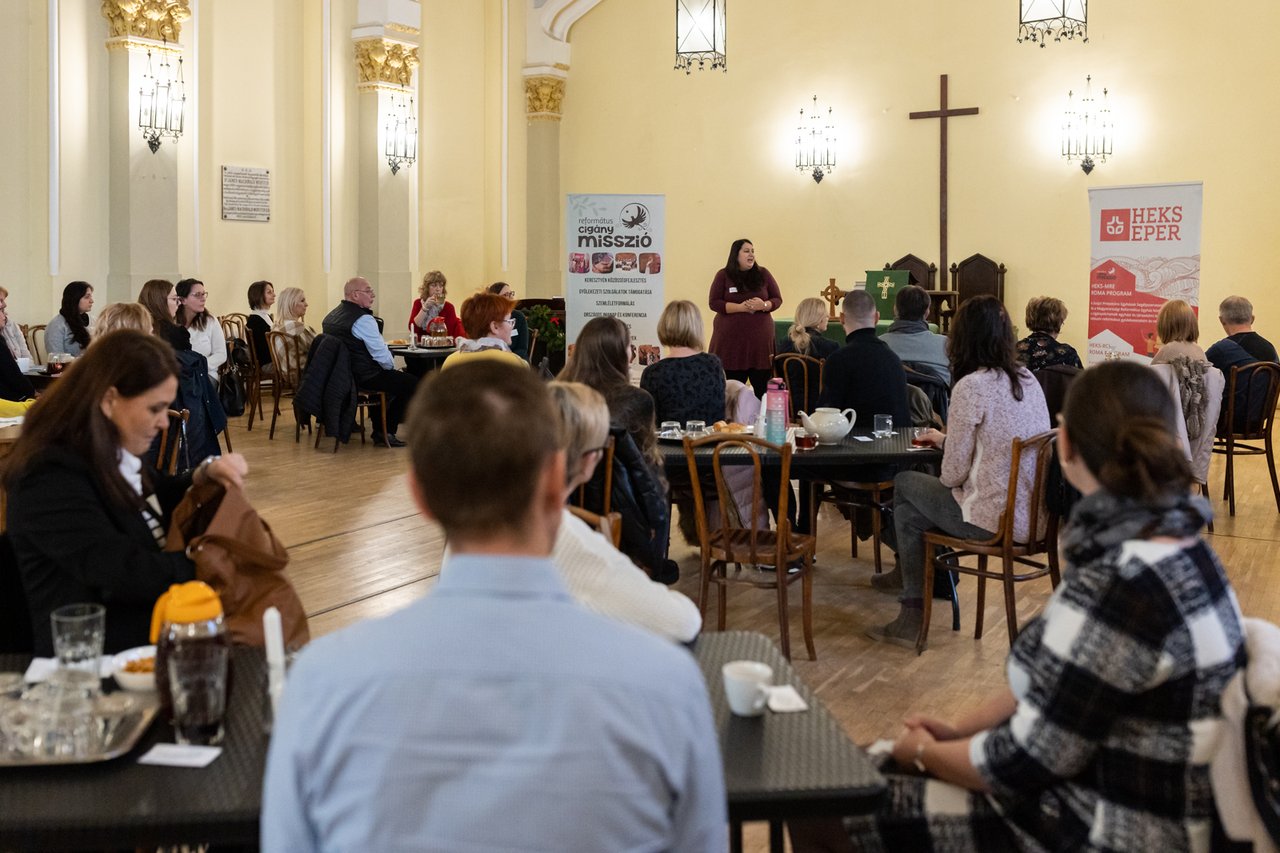
Rev. Szabina Sztojka, minister of the Roma Ministry
Photo: Levente Váradi
What was the message of the meeting?
In the closing circle following the workshops, Szabina Sztojka, the pastor of the Roma Ministry, encouraged the participants with Psalm 126: teachers are the ones who play a prophetic role in the life of a community of a child. They show the way, the purpose, and the hope for children. The ministry of restoration is not only the task of pastors, but also of teachers, who can thus be present with a prophetic mission in the communities where children are educated.